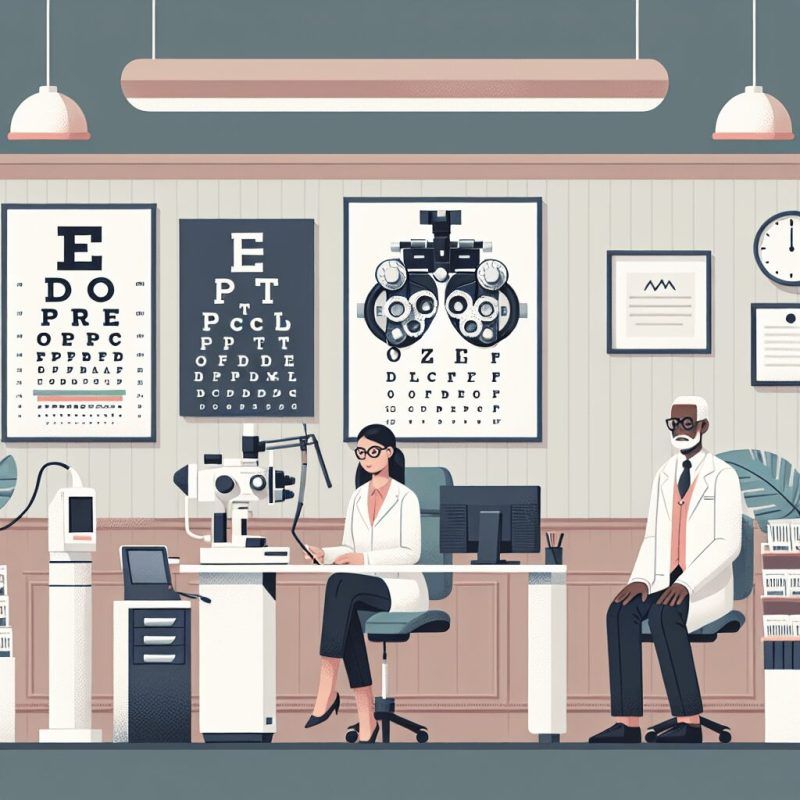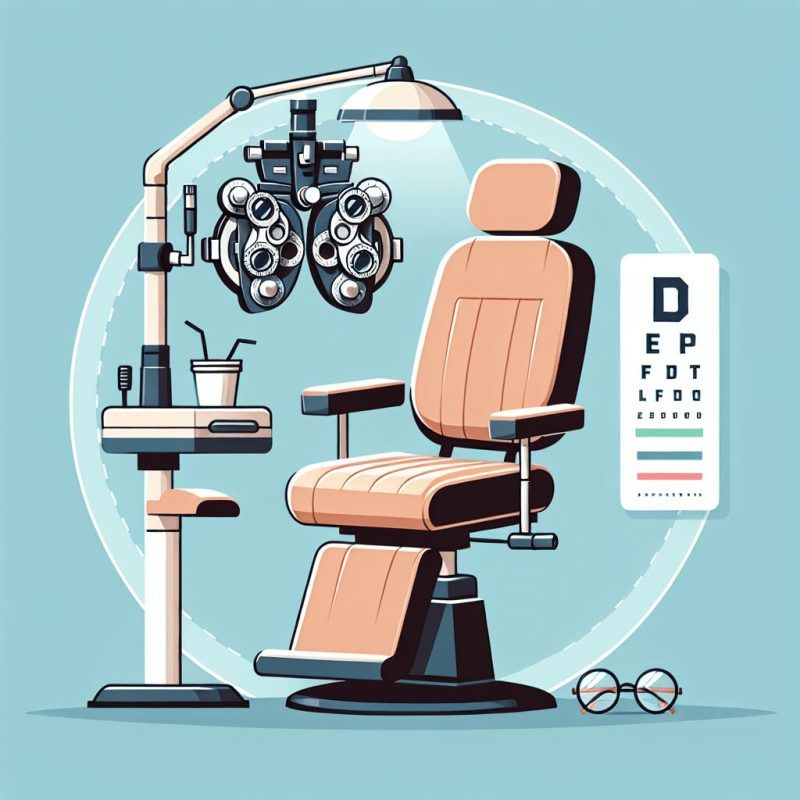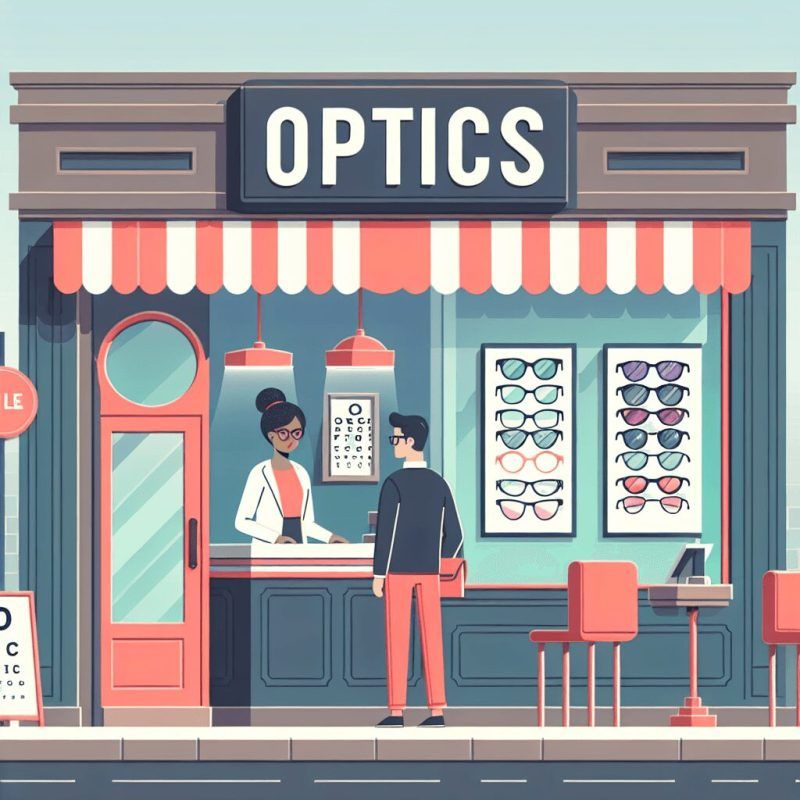Doctor's Corner
Best Optometrists Near Me: How to Choose the Right One
Choosing an optometrist can seem challenging, but it can be simpler with some helpful considerations. Knowing what to expect during your eye exam and remembering the significance of routine check-ups can guide you in selecting a qualified eye doctor in your area. This guide will assist you in making a thoughtful decision for your family’s eye care needs. Let’s look into the process of finding the right optometrist for you.
Understanding the Role of an Optometrist
Optometrists are licensed eye doctors who conduct eye exams and diagnose visual disorders. They perform tests like visual acuity assessments and eye pressure tests to check for refractive errors, which can affect vision clarity. In addition to prescribing eyeglasses and contact lenses , optometrists can identify serious health conditions such as glaucoma or diabetic retinopathy.
Their training includes understanding how nutrients like vitamin A, vitamin C, vitamin E, lutein, and zeaxanthin contribute to maintaining eye health. They also provide guidance for treating symptoms of eye disorders. Regular visits to an optometrist can help prevent vision problems and ensure overall well-being. With advancements in technology, some optometrists offer video visits, making it easier for patients to access eye care. Many optometrists also accept vision insurance, ensuring that services are affordable.
For those looking for eye doctors near them, platforms like Zocdoc can show real-time availability and assist in searching through criteria for specific needs. Pediatric optometry is another important service, as eye care at a young age sets the foundation for healthy vision later in life.
How to Search for the Best Optometrists Near Me
Individuals can find highly-rated optometrists in their area by using websites that allow them to check real-time availability, read reviews, and filter based on specific criteria. They should look for licensed optometrists who offer routine eye exams and specialize in areas such as pediatric optometry or advanced technology in eye care.
It’s helpful for a person to assess the qualifications and experience of optometrists by reviewing their educational background, years in practice, and any specialties in visual disorders or eye health. Online reviews and patient testimonials are informative as they provide insights into the care received, including the effectiveness of services like eye exams, prescriptions for eyeglasses or contact lenses, and how well the doctors address symptoms of vision issues.
Furthermore, understanding the insurance options accepted by the eye doctors, including various vision insurance plans, can help ensure affordability for necessary services such as eye exams and follow-ups for treatment of refractive errors. Lastly, incorporating nutrients like vitamin A, vitamin C, vitamin E, lutein, zeaxanthin, and zinc into one’s diet can further support overall eye health.
Factors to Consider When Choosing an Eye Doctor
Qualifications and Credentials
Optometrists hold a Doctor of Optometry degree, which is necessary for practicing eye care , allowing them to diagnose and treat a range of vision problems. Many have pursued additional certifications in fields like pediatric optometry or eye disorder management, which enhances their knowledge. Their education includes training in advanced technology for eye exams, which leads to accurate prescriptions for glasses or contact lenses.
Ongoing education is significant, as optometrists remain informed about new treatments and technologies related to eye health, including recent discoveries regarding nutrients such as vitamin A, vitamin C, vitamin E, lutein, and zeaxanthin that contribute to vision support. Patients can locate a licensed optometrist through platforms like Zocdoc, which displays real-time availability and options based on search criteria. During routine eye exams, optometrists assess symptoms of vision impairment and refractive errors, ensuring eye care is thorough.
Insurance options, such as vision insurance, allow more individuals to access these health services. With personalized attention and current knowledge, they strive for optimal outcomes in their patients’ eye health.
Experience and Specialization
Optometrists often specialize in areas like pediatric optometry, eye disorders, and vision problems. This focus allows them to provide care tailored to their patient’s specific needs, whether it’s helping kids with vision impairment or treating symptoms like blurry vision. Many licensed optometrists have over five years of experience, often gained in diverse settings, including clinics and hospitals.
They work with advanced technology, ensuring accurate eye exams using tools like visual acuity tests and auto refraction. To enhance their expertise, many optometrists pursue further training in specific treatments, like fitting contact lenses or improving their understanding of visual disorders. This extra knowledge helps them recommend the right nutrients, such as vitamins A, C, and E, as well as lutein and zeaxanthin for eye health.
Using platforms, patients can easily find an eye doctor nearby who meets their search criteria, ensuring real-time availability for comprehensive eye exams covered by vision insurance. These routine eye exams are important for maintaining optimal vision and overall health.
Patient Reviews and Testimonials
Patient reviews reveal that many individuals appreciate the quality of care they receive from their optometrist, noting thorough eye exams that include screenings for refractive errors and visual disorders. Patients often mention the professionalism of eye doctors, highlighting their use of advanced technology to assess eye health and provide accurate prescriptions for eyeglasses or contact lenses.
Testimonials typically express a high level of satisfaction, indicating that trust in the optometrist’s expertise grows when patients feel their concerns are heard. Many patients share experiences that emphasize the significance of communication; for instance, they appreciate clear explanations about symptoms and treatment options. They also value support in navigating insurance, such as vision insurance acceptance, making it easier to obtain care.
Additionally, the availability of video visits has been praised, as it offers convenience when scheduling routine eye exams. Patients often refer to the comprehensive approach of their optometrists, which emphasizes both health and wellness through discussions about important nutrients like zinc, lutein, zeaxanthin, vitamin A, C, and E for maintaining good vision.
Top Tips for Selecting a Best Optometrist
1. Verify My Insurance Acceptance
To verify if my insurance is accepted by an optometrist, the first step is to contact the office directly. Many optometrist offices can be found through online platforms, which offer real-time availability and can show which eye doctors are in the area. While discussing, it’s helpful to provide specific details about the insurance plan being used.
Individuals should inquire about the types of insurance that are accepted, including any limitations for vision exams or eyeglasses. It’s important to have the insurance card handy and to know any relevant identification numbers associated with the policy. If an individual has vision problems or symptoms requiring specialized care, this can also be mentioned to gauge if more personalized services are available. In addition to this, asking about routine eye exams, contact lenses, and any pediatric optometry options can ensure all needs are met.
2. Assess Location and Availability for Appointments
When searching for an eye doctor near you, the location of the optometrist’s office matters for convenience. Finding a nearby optometrist makes it easier to fit routine eye exams into a busy schedule, helping to maintain eye health. Many optometrists offer flexible hours, including evenings and weekends, which is beneficial for those who work during traditional hours.
It’s also useful to check if the optometrist allows for same-day appointments or urgent visits, especially for those experiencing symptoms like vision problems or eye disorders. Platforms can help check real-time availability and book appointments that fit individual schedules. Patients should also consider whether their vision insurance covers eye exams, eyeglasses, or contact lenses, ensuring they can access necessary care without added stress.
Choosing a licensed optometrist who understands the significance of vitamins like A, C, and E, along with nutrients such as lutein and zeaxanthin, can contribute to improved eye health and overall wellness.
3. Inquire About Comprehensive Eye Exams Offered
Comprehensive eye exams from optometrists include various tests and procedures. These often feature a visual acuity test, eye pressure test, and retinal evaluation. Specific assessments may check for refractive errors or visual disorders using cutting-edge technology. Each optometrist customizes these routines to suit patient needs, assessing symptoms like blurry vision or discomfort and considering personal history. For patients with special conditions, more frequent exams may be arranged.
Advanced equipment like auto refraction helps determine accurate prescriptions, while the latest imaging technology can detect eye disorders early. Nutritional elements are also taken into account, as vitamins A, C, E, lutein, and zeaxanthin contribute to eye health. Patients seeking eye doctors or contact lenses can easily find real-time availability of licensed optometrists nearby. Many locations accept vision insurance, simplifying the management of eye care expenses.
Those needing multiple pairs of eyeglasses might discover deals for two pairs at appealing prices, further catering to their vision needs.
4. Explore Options for Video Visits
Video visits with optometrists provide a convenient option for eye exams and discussing vision issues from home, making them appealing compared to in-person appointments. Patients can easily find eye doctors through platforms that offer real-time availability and filtering by search criteria, including nearby licensed optometrists. To participate in video visits, patients should have a reliable device, an internet connection, and any necessary software.
Devices equipped with a webcam ensure clear communication. Practices may use encrypted platforms to protect patient privacy and confidentiality, keeping sensitive health information secure. During video visits, optometrists can assess symptoms related to visual disorders and adjust prescriptions for eyeglasses or contact lenses as needed.
These sessions may also include discussions about the importance of nutrients such as vitamin A, vitamin C, and zinc for eye health, as well as indications for further tests or routine eye exams to monitor ongoing health and eye care needs.
5. Check for Additional Services, Like Eyeglasses Doctor
Many eye care facilities offer various services related to eyeglasses and vision correction. Along with an eye exam, licensed optometrists can provide consultations for selecting the right eyeglasses. They evaluate prescription needs and can recommend frames that suit the patient’s style and facial features. During the fitting process, the optometrist ensures proper alignment and comfort, using advanced technology for accurate lens adjustments.
Patients also have the option of video visits, enabling consultations with eye doctors from home. Fitting services might be part of the eye exam costs, although additional fees may apply for specific fittings or adjustments, depending on the facility. Some locations may feature real-time availability on platforms like Zocdoc, simplifying the scheduling process. Being aware of insurance coverage for these services can aid in managing costs, particularly for routine eye exams that address common eye issues and help minimize vision problems.
Nutrients such as vitamins A, C, E, lutein, and zinc support eye health, and optometrists can advise patients on their requirements.
Common Services Provided by Optometrists
Eye Exams
A thorough eye exam by a licensed optometrist includes various elements that assess vision and eye health. Tests like visual acuity assessments using an eye chart, eye pressure checks for glaucoma, and retinal evaluations help identify issues such as refractive errors or visual disorders. Routine eye exams are typically recommended annually to keep track of eye health and update prescriptions for glasses or contact lenses.
Certain symptoms might warrant an earlier visit, such as vision issues, blurry sight, headaches, or strain. Eye care professionals advocate for proactive measures since symptoms may point to serious conditions. Nutrients like vitamins A, C, and E, along with lutein and zeaxanthin, contribute to eye health. Some optometrists accept vision insurance and provide video consultations, allowing for immediate access to eye care. For families, pediatric optometry focuses on closely monitoring children’s vision to help avoid long-term issues.
Diagnosis and Treatment of Eye Conditions
Optometrists employ advanced diagnostic tools like visual acuity tests, retinal evaluations, and pressure tests to accurately diagnose eye conditions such as refractive errors and visual disorders. These inspections help eye doctors identify symptoms that may indicate more serious issues, like eye disorders or vision impairment. Treatment options include prescribing eyeglasses or contact lenses and recommending vitamins A, C, E, lutein, and zeaxanthin to support eye health.
During routine eye exams, licensed optometrists assess each patient’s unique situation to determine the best prescription or treatment plan. Follow-up care is important; optometrists educate patients on managing their eye health and when to seek additional care. Through video visits and real-time availability for appointments, patients can easily connect with doctors for eyeglasses or further consultations, ensuring ongoing support for their vision needs.
Many of these services accept vision insurance, making it easier for individuals seeking the best care. For pediatric optometry, regular eye exams are necessary to address any early symptoms and promote healthy vision in children.
What to Expect During Your Appointment
During an appointment with a licensed optometrist, patients can expect several tests, such as a visual acuity test, eye pressure test, and assessments for color vision and depth perception. The optometrist will evaluate the patients’ eyes using advanced technology to check for refractive errors and disorders. After the exam, the doctor will explain the findings, discuss any vision problems, and recommend the best solutions, which could include eyeglasses or contact lenses.
To prepare, patients should gather their vision insurance information, bring any current eyewear, and be ready to share symptoms or concerns about their eye health. Families seeking pediatric optometry for children should also consider scheduling routine eye exams to monitor health.
Finally, during the appointment, patients can ask about nutrients like vitamins A, C, E, lutein, zeaxanthin, and zinc, which are important for maintaining vision.
Maintaining Eye Health After Your Visit
After an eye appointment, individuals should follow the optometrist’s advice, such as taking prescribed vitamins like vitamins A, C, and E, along with nutrients like lutein and zeaxanthin, to support eye health. Regular follow-up appointments with the eye doctor can help monitor any symptoms of vision problems or eye disorders, ensuring that issues like refractive errors are caught early.
Adhering to recommended treatments and getting routine eye exams can significantly reduce the risk of vision impairment. Lifestyle adjustments are important for long-term eye care; wearing sunglasses to protect against harmful UV rays and using proper lighting while reading can prevent strain. Eating a balanced diet rich in zinc and antioxidants supports overall vision health. For those interested in eye care options, platforms like Zocdoc can help find a licensed optometrist nearby, along with real-time availability for appointments.
Individuals may also consider video visits for quick consultations, especially when experiencing symptoms like blurry vision or headaches, and investing in quality eyewear, whether eyeglasses or contact lenses, is another important step in maintaining eye health.
FAQ
What should I look for when choosing an optometrist near me?
Look for an optometrist with positive reviews, convenient office hours, and a welcoming atmosphere. Check if they offer a range of services, such as eye exams and contact lenses. Ask about insurance acceptance and the availability of modern technology, like digital retinal imaging.
How can I find the best-rated optometrists in my area?
To find the best-rated optometrists, check online review platforms. Ask for recommendations from friends or family. Additionally, consult local medical boards or health insurance directories for top-rated providers in your area.
What questions should I ask during my first visit to an optometrist?
Ask about your vision tests and what they measure. Inquire about the best lens options for your prescription. Don’t forget to ask how often you should schedule eye exams and whether lifestyle changes could improve your eye health.
How do the services offered by optometrists vary?
Optometrists offer various services, including comprehensive eye exams, vision correction prescriptions, treatment for eye diseases, and contact lens fittings. Some may also provide specialized services like pediatric eye care or laser vision correction. Always check with your optometrist for specific services available in your area.
Is it important to verify the credentials and experience of an optometrist?
Yes, verifying an optometrist’s credentials ensures they are licensed and qualified. Check for board certification, read patient reviews, and confirm their experience with specific conditions, such as pediatric eye care or contact lens fitting, to ensure you receive quality care.
Finding the right optometrist is crucial for your eye health. Visit Superior Eye Care in The Woodlands or Quality Eye Care in Willowbrook, Texas, where our experienced professionals provide personalized care and comprehensive eye exams. Choose an optometrist who prioritizes your vision and overall eye health with tailored solutions.
The post Best Optometrists Near Me: How to Choose the Right One first appeared on Optometrist in Woodlands & Willowbrook TX.
Doctor's Corner





